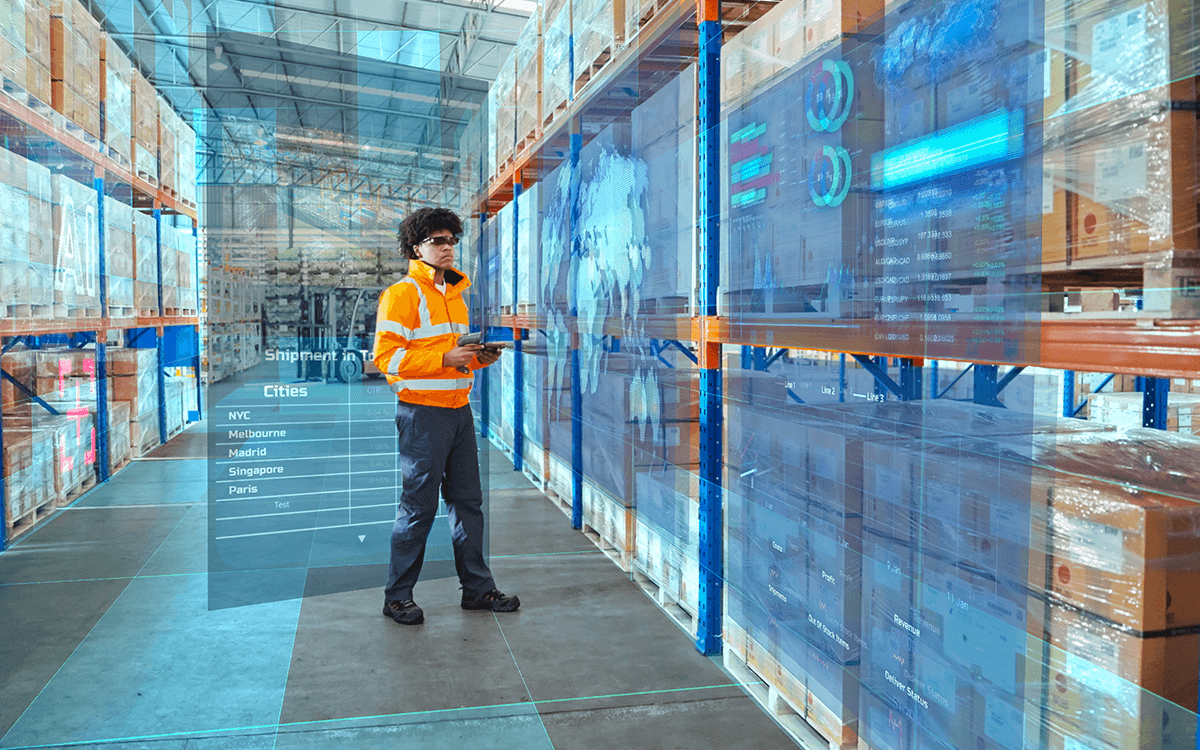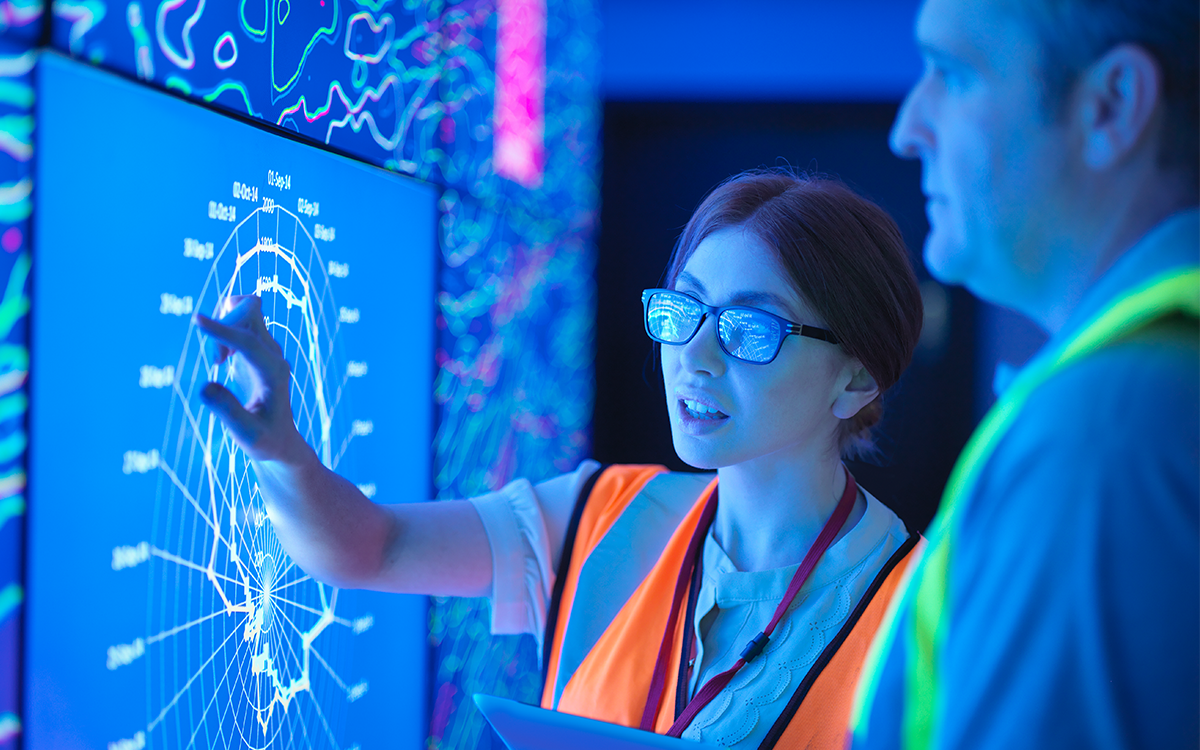CX in retail: How to use AI to drive customer growth, workforce wellbeing, and sustainable retail
Fujitsu / April 24, 2024
Innovation is nothing new in retail. It’s long been the unspoken currency of success in this sector, honed by the necessity to survive and progress. From the advent of the first cash register to self-checkout systems, retailers have always been at the forefront of the digital evolution. But technology itself is just the tool. It’s not about adopting new technologies for the sake of it; it’s about exploring ways these tools can add lasting value – whether that’s through selling more products, reducing operational costs, or helping to meet sustainability targets.
Innovation is an oft-used, nebulous word. But, in simple terms, it means filling a gap or answering a problem which you were previously unable to. And technology is often the enabler of this. With the latest wave of available AI capabilities, technology will continue to have a huge impact on the retail industry in the years to come. That’s why it’s wise to understand this technology in more detail today, and the various ways it can help you continually enhance customer experience (CX).
Read on to learn how you can harness the opportunities that come with AI technology and implement innovative, sustainable practices.
The dual power of AI in retail
AI transcends mere data analysis, but one of its main capabilities is being able to analyze data at scale – far quicker than any human could. And this can provide a range of benefits in retail, both at the front-end of your business and in the back office. In practice, however, it’s best to think of AI embodying two key roles: artificial intelligence that mimics human thinking and acting, and generative AI.
The former analyzes vast data sets to identify patterns, enabling retailers to anticipate stock issues, minimize downtime, optimize resource deployment, and predict customer behavior. The latter (generative AI) takes this a step further by generating personalized content, product ideas, and offers to enhance CX. From data on customers’ preferences to their shopping locations and habits, this analysis can help you turn insights into real-time actions. So, you can craft personalized buying journeys for different groups of people. For example, a loyalty program that rewards a customer with personalized offers following a specific action or engagement. These reward models will replace generic shopping points schemes and mass discounts of old. That’s because they’re far more effective at making the modern customer feel valued.
AI can also play an instrumental role in physical stores. Technology such as AI-based cameras can monitor in-store congestion, estimate customer ages to monitor the sale of age-restricted items, identify people in need of assistance, and support the planning of optimal product placement and shelf layouts. This level of data-driven decision-making was previously unattainable for retailers without substantial investment in time and resources. Just take a look at how AEON Retail, a retail company in Japan, created new shopping experiences using AI-powered camera systems, with our support.
Generative AI tools such as ChatGPT can also help elevate CX while improving efficiency, by simulating human responses online. These platforms automatically find answers by searching through masses of data in an instant – surpassing any manual effort. The added bonus is this ensures a traceable record of interactions, vital for better understanding the needs and wants of your customers. So, you can develop more personalized services and build trust to create an appetite for further purchases. Ultimately, grow your business at pace.
Harnessing technology for a better world
Customers today aren’t solely looking for unique shopping experiences, they also want to buy from brands that match their values. And most retailers are now aware of the fact they need to take responsibility and reduce their environmental impact. The pressure is not only mounting from customers, but stakeholders and regulatory authorities too. When combined with the Internet of Things (IoT), AI has the potential to monitor staff productivity, optimize logistics, and enhance overall operational efficiency. This gives you the opportunity to cut waste and costs.
The power of real-time data analysis provides you with unparalleled transparency throughout your supply chain, from material sourcing to offshore partner behaviors, through to finished product placement. It’s this visibility that enables you to make informed, proactive decisions to reduce carbon footprint, ensure ethical compliance, and get closer to meeting sustainability targets, such as the Corporate Sustainability Reporting Directive (CSRD). For example, using AI to recommend the optimal route for delivery drivers to keep CO2 emissions to a minimum. Or installing automated sensors to switch off systems and facilities on standby.
Understanding the impact of your infrastructure and processes on people, the planet, and society is urgently important. But this needn’t conflict with business growth; retailers need to find a way to make sustainability targets and economic success co-exist. The best place to start is by establishing a baseline from which you can monitor your levels of consumption and waste. Once you have this data (collated through AI), you can review potential areas to manage more efficiently or cut down usage, saving you money and lowering your environmental impact. This is the kind of innovation the world requires.
However, it’s not on retailers to deliver this alone. Customers must play their part too. Though it’s often acknowledged that younger generations such as Millennials and Gen Zs are more environmentally aware, they also hold expectations around immediacy of service (i.e. fast deliveries which can be less efficient because they use more fuel). That’s why getting to know your customer base better is essential, so you incentivize them to make more sustainable choices. In this way, together, you can both be part of the solution and create new social norms by taking bold, innovative steps. Think, the success of bags for life.
Fears, hype, and the human touch
With the recent explosion of available AI platforms, some people worry that technology will further dehumanize the world and threatens their jobs. However, contrary to these fears, AI is more likely to complement human roles by carrying out repetitive tasks and filling labor gaps. While automation enables efficiency and precision, the ‘human’ element is still an integral part of the shopping experience. It’s that human touch that can offer insights and create an emotional connection with customers.
For retailers, the crux lies in understanding where both human skills and technology work best in their organizations. Consider the checkout process, now streamlined with contactless, automated systems. Or inventories no longer being a laborious task, but a finely tuned operation conducted by intelligent algorithms. By harnessing emerging technologies to perform these kinds of roles, employees can upskill and graduate to more purposeful career paths. This helps to create a dynamic work environment and fosters employee retention.
With the pace of change, retailers might feel pressured to invest in every emerging platform going. But it’s important not to give into the hype. AI won’t change things overnight in retail. Rather, it will have a more gradual impact on both operations and the workforce, transforming different sectors at different speeds. Therefore, it’s important to explore AI, but you should do it with a focus on the value it adds to people, the planet, society, and your business.
Let’s create innovative shopping experiences
Technology, once viewed as disruptive, has seamlessly woven itself into the fabric of retail operations. When deployed strategically and purposefully, it enhances efficiency and CX in equal measure. As the industry evolves, we believe that AI can further facilitate these ambitions. So, you can successfully blend digital and physical stores through innovative, new ways of retailing. That’s why it’s important to have the right technology partner to guide you.
At Fujitsu, we’re ready to work with you, using our expertise and experience to deliver your vision for unified commerce in affordable, achievable steps. We’re guiding retailers towards a future marked by enhanced CX, increased efficiency, and exceptional visibility through the use of innovative technologies. Our global reach, along with our partner GK Software – a leader in retail solutions for 30 years – means we can provide trusted end-to-end implementation, services, and support. So, you can extract the most value from your retail solutions, transform your CX, drive growth, and meet your sustainability goals.

Editor's Picks












